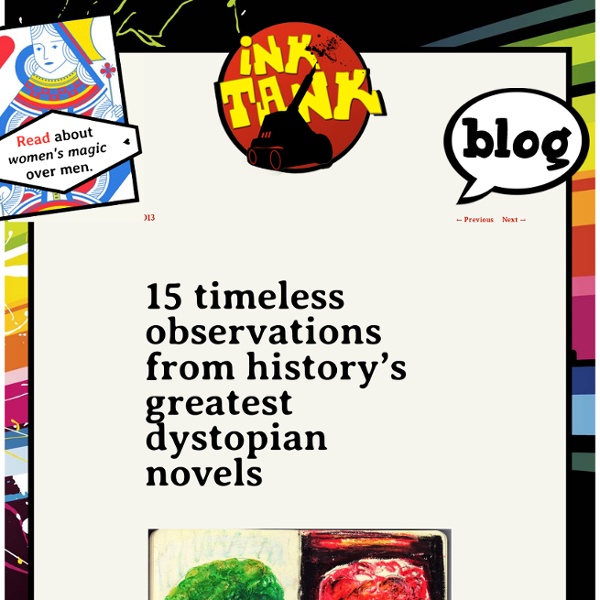15 timeless observations from history’s greatest dystopian novels

A List of Books | 623 of the Best Books ever Written
Amazon 100 books to read in a lifetime
'1984' by George Orwell 'A Brief History of Time' by Stephen Hawking 'A Heartbreaking Work of Staggering Genius' by Dave Eggers 'A Long Way Gone: Memoirs of a Boy Soldier' by Ishmael Beah 'A Series of Unfortunate Events #1' by Lemony Snicket 'A Wrinkle in Time' by Madeleine L'Engle 'Alice Munro: Selected Stories' by Alice Munro 'Alice in Wonderland' by Lewis Carroll 'All the President's Men' by Bob Woodward and Carl Bernstein 'Angela's Ashes: A Memoir' by Frank McCourt 'Are You There, God? 'Bel Canto' by Ann Patchett 'Beloved' by Toni Morrison 'Born To Run - A Hidden Tribe, Superathletes, and the Greatest Race the World Has Never Seen' by Christopher McDougall 'Catch-22' by Joseph Heller 'Charlie and the Chocolate Factory' by Roald Dahl 'Charlotte's Web' by E.B. 'Cutting For Stone' by Abraham Verghese 'Diary of a Wimpy Kid' by Jeff Kinney 'Dune' by Frank Herbert 'Fahrenheit 451' by Ray Bradbury 'Fear and Loathing in Las Vegas: A Savage Journey to the Heart of the American Dream' by Hunter S.
Related:
Related:



